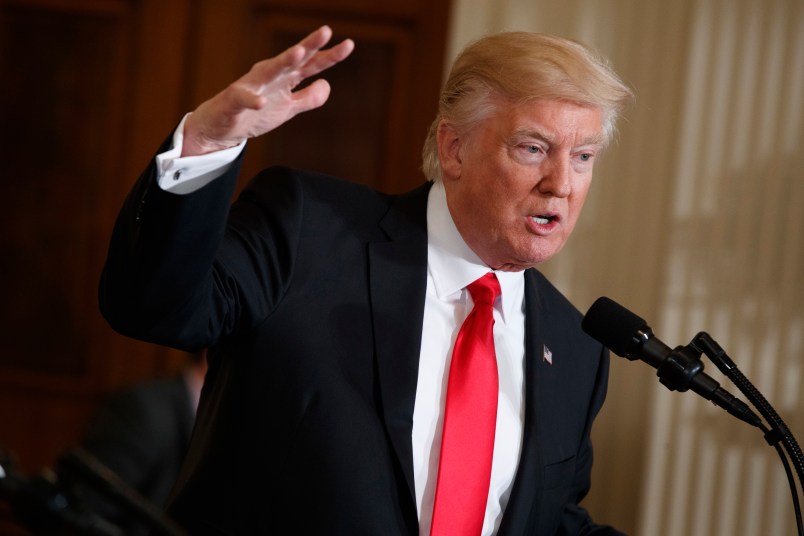WASHINGTON (AP) — Making the case for a Republican repeal and replacement of his predecessor’s health care law, President Donald Trump reached for a dire-sounding argument that’s unsupported by the data.
“Many of our best and brightest are leaving the medical profession entirely because of Obamacare,” Trump told his audience at a Monday night rally in Louisville, Kentucky.
In fact, the number of doctors in the U.S. actively caring for patients grew from 799,501 in 2010, when the Affordable Care Act was signed into law, to 860,939 in 2015, according to the Association of American Medical Colleges. The American College of Physicians, which represents internists, the largest specialty, says its enrollment of new doctors has increased every year since 2012. The American Academy of Family Physicians has seen its membership grow from 94,620 to 124,900 since 2008.
While there are anecdotes about doctors dropping out, “we see no significant number exiting related to the Affordable Care Act,” said Dr. Atul Grover, executive vice president of the medical colleges association. “There is also no evidence of a declining interest in medicine since the ACA took effect.”
Change in the medical profession has brought discontent among doctors, but the culprits are much larger than President Barack Obama’s health care law. A shift in the way doctors are paid — increasingly for results, rather than for specific procedures — and paperwork requirements driven by insurance companies and Medicare are leading factors, according to a 2016 survey of doctors by the Physicians Foundation.
Another big factor driving departures from the profession is age. Physicians in the baby-boom generation, particularly those who are specialists, are particularly inclined to speed up their retirement plans, the survey found.
The largest professional organizations that represent doctors are opposed to Trump’s efforts to repeal and replace the Obama law. The internists’ group says the proposal “will likely result in less access to coverage and higher costs for millions of patients.” And the family physicians’ group says the proposal threatens the “significant increase in coverage” that the current law has provided.
___
Find all AP Fact Checks at http://apne.ws/2kbx8bd
Copyright 2017 The Associated Press. All rights reserved. This material may not be published, broadcast, rewritten or redistributed.







“Making the case for a Republican repeal and replacement of his predecessor’s health care law, President Donald Trump reached for a dire-sounding argument that’s unsupported by the data.”
There is a word for that sort of argument and the medias unwillingness to use it is part of why that lying asshole is president.
And of course the AP doesn’t have the balls to call a lie a lie.
Doctors also hatehatehate that they’re losing their turf war with nurse practitioners and physician assistants, and specialists like Tom Price hatehatehate that their absurdly overinflated incomes are slightly less disproportionate to the meager salaries commanded by primary care physicians for manning the front lines of care – both shifts encouraged by the ACA. But overall they’ve made the shift to the ACA and don’t want their patients to die for want of insurance coverage.
In addition, admissions to US medical schools began declining in the late 1990s, fueled partly by dissatisfaction over and frustration with the increasing power that third-party payers – HMOs and other insurers – held over doctors and healthcare facilities.
That the slide began to reverse with the passage of the ACA might have something to do with its emphasis on increasing access to health care, promoting service to underserved communities, emphasizing the centrality of the primary care specialties as the doctor of first contact and the coordinator of specialty care, and its role in addressing the overuse of expensive emergency rooms as primary care and ambulatory facilities.